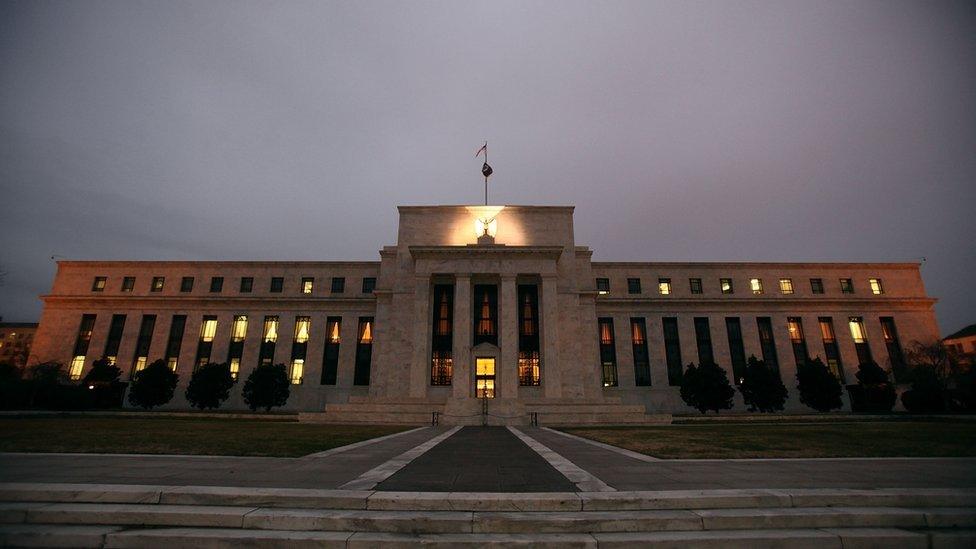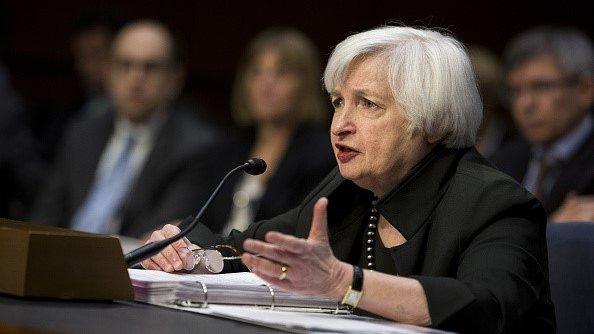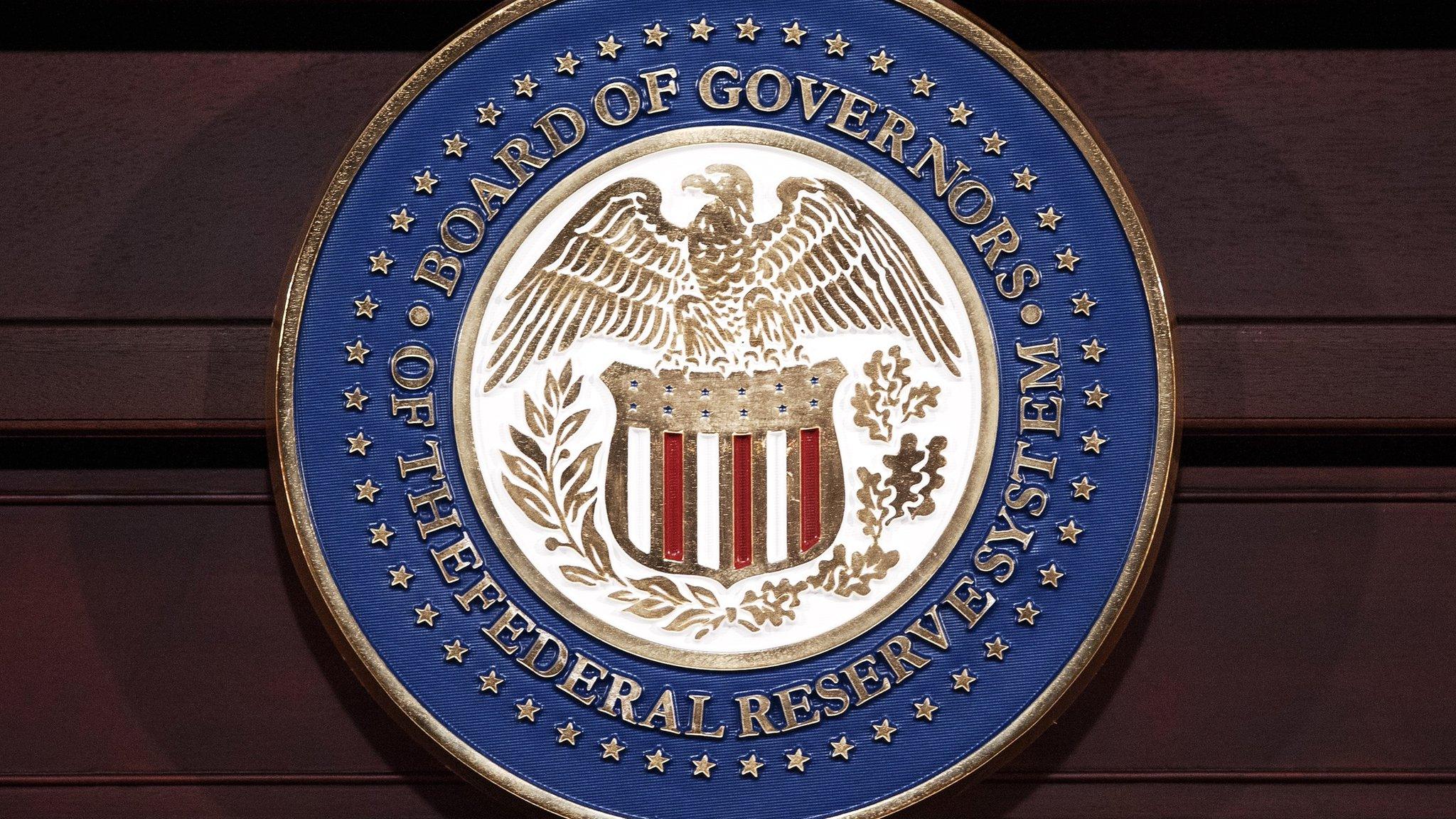US Federal Reserve worried about increasing economic risks
- Published

Members of the US Federal Reserve considered changing course on their plan to raise rates throughout 2016, minutes from Fed's last meeting show.
Records released on Wednesday showed that members were worried that a global economic slowdown could hurt the US.
Policymakers agreed that "uncertainty had increased" since the decision to raise interest rates in December.
Some members felt that tighter economic conditions would be "roughly equivalent" to further hikes.
Members of the central bank voted unanimously to raise the Fed's key interest rate by 25 basis points - to between 0.25% and 0.5% - in December.
Since that decision, oil prices have continued to fall and global share markets have been highly volatile.
"The minutes are indeed a more dovish tint to the Fed's language and, on balance, likely suggest a lower likelihood of the Fed raising rates in March," said Omer Esiner, chief market analyst at Commonwealth Foreign Exchange.
'Economic drag'
The minutes said: "Members observed that if the recent tightening of global financial conditions was sustained, it could be a factor amplifying downside risks," to the US economy.
The members agreed that it was too early to determine whether the data warranted changing course, but stated that they planned to continue to monitor the situation.
Testifying before Congress last week, Fed chairwoman Janet Yellen warned that growth in the US economy could be hurt by global conditions.
The economic slowdown in the China and other emerging nations was noted as a factor that could "drag on the US economy".
The minutes also showed that Fed members were concerned about the impact of a slowing China on Mexico and Canada, the two biggest trading partners for the US.
- Published10 February 2016

- Published15 December 2015

- Published15 December 2015
